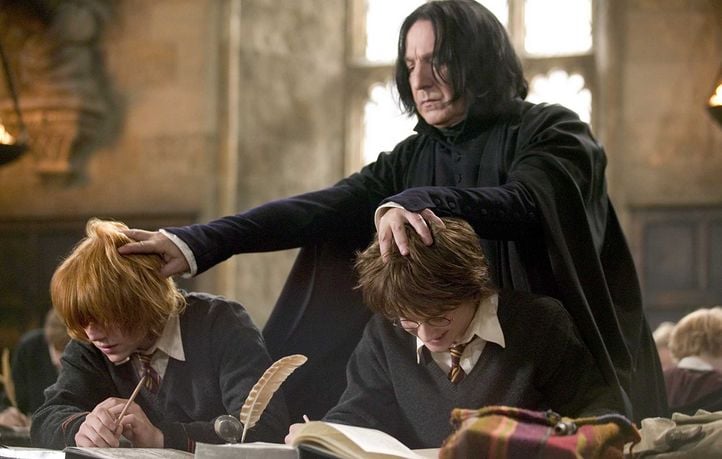What do your media choices say about your political beliefs? For example, what would you assume about the political beliefs of Harry Potter fans, knowing nothing else about them other than their interest in J.K. Rowling’s series?
Although I’ve read all of the Harry Potter books multiple times myself, I wouldn’t have necessarily assumed that most other people who read them also share my political beliefs. The books include a lot of political plot points, but there are a lot of different types of perspectives espoused therein, and the books don’t always take a moralizing stance either way. For example, Hermione’s advocacy for house elves gets both mocked and celebrated by the other characters at various points, so I’d argue that it’s largely left up to the reader to decide where they stand on that issue.
Anyway, University of Pennsylvania professor Diana Mutz has authored a new study to document the political beliefs of Harry Potter readers, and it turns out that there’s a strong correlation to be found there. According to the data, the more Harry Potter books you read, the more likely it is that you won’t agree with Republican Presidential nominee Donald Trump. If you read one book and you didn’t continue with the series, then you might still be planning to vote for him, but if you read the entire series? It’s far less likely that your politics align with Trump’s.
Correlation is not causation, although perhaps a case could be made for Harry Potter influencing the progressive politics of today’s youth. (Cringe-worthy magazine cover story blaming Harry Potter for lazy millennials in three … two … ). Not that the world of Harry Potter is a progressive paradise, by any means—especially given the recent expansions to its lore—but as far as cultural touchstones go, Harry Potter has some notable differences from, say, The Fountainhead. The Harry Potter books focus on the power of love, cooperation, working together, and not judging people based on first impressions or preconceived biases … total touchy-feely bleeding-heart stuff, am I right??? That makes sense, given Rowling’s own politics:
How horrible. Voldemort was nowhere near as bad. https://t.co/hFO0XmOpPH
— J.K. Rowling (@jk_rowling) December 8, 2015
This study reminded me of another recent survey about the TV series Supernatural, which apparently has managed to be a huge hit among both Republicans and Democrats. Republicans actually listed Supernatural as their favorite show, whereas Democrats listed it as their third favorite, in an average of top ten lists of shows. Here’s the rundown, via io9:
Republicans
1. Supernatural (CW)
2. The Walking Dead (AMC)
3. Scorpion (CBS)
4. Arrow (CW)
5. The Flash (CW)
6. The Big Bang Theory (CBS)
7. NCIS (CBS)
8. Blue Bloods (CBS)
9. Grimm (NBC)
10. Last Man Standing (ABC)
Democrats
1. Game of Thrones (HBO)
2. The Haves and the Have Nots (OWN)
3. Supernatural (CW)
4. The Big Bang Theory (CBS)
5. Suits (USA)
6. The Walking Dead (AMC)
7. How to Get Away With Murder (ABC)
8. Doctor Who (BBC America)
9. Empire (Fox)
10. Nashville (ABC)
Although some of these shows are more subtle about their political implications than others, they’re all political (everything is), and when you look at the lists through that lens, the patterns do line up. For example, it makes sense that Republicans might rate a post-apocalyptic drama like The Walking Dead more highly than their Democrat peers, since many apocalypse stories are heavy on the guns and light on the governmental influence. I doubt that viewers are explicitly thinking about that aspect while they watch it; I would guess that it’s more of a subconscious reaction.
Earlier this week, I wrote about the similar trend happening among Ghostbusters fans right now. A lot of folks had no idea that the first Ghostbusters movie was a big hit with Reagan’s voter-base; after all, the movie that casts the EPA as the villain and championed in favor of small business. It’s about a lot of other things, too, like bustin’ ghosts, but the political undercurrent is built in as well. The new Ghostbusters has a very different political message, though, which might be leading to some of the negative reactions to the film amongst the fans of the original, especially the conservative and/or libertarian fans who enjoyed those themes (either consciously or subconsciously) in the first movie.
So, the patterns make sense. People probably lean towards media that aligns with their own political beliefs, even if it’s just a subconscious preference and not an explicit choice. Except for one thing: why does The Big Bang Theory appear on both of those top-ten lists? Like, seriously, politics aside, there are funnier shows out there! At least we can all come together on agreeing to watch some Supernatural instead.
(via ATTN and io9, images via Movie Pilot and Bustle)
—The Mary Sue has a strict comment policy that forbids, but is not limited to, personal insults toward anyone, hate speech, and trolling.—
Follow The Mary Sue on Twitter, Facebook, Tumblr, Pinterest, & Google+.








Published: Jul 27, 2016 02:57 pm